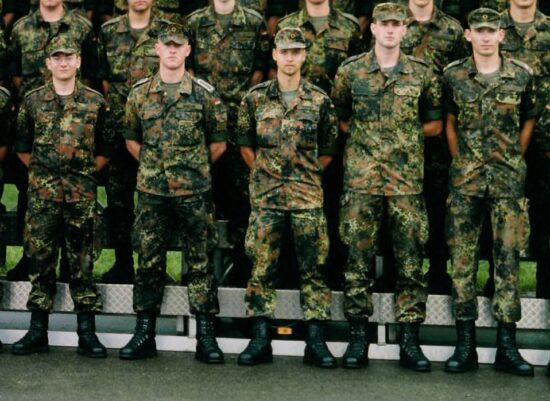Germany’s coalition government has reached an agreement on a new military service framework intended to expand troop numbers, concluding months of political debate among competing factions. The updated model introduces mandatory questionnaires for all 18-year-old men to determine their suitability for service, with compulsory medical examinations set to begin in 2027.
The move forms a key part of Berlin’s ambition to build what Chancellor Friedrich Merz describes as Europe’s most powerful conventional military force.
Armin Papperger, head of Germany’s largest defence manufacturer Rheinmetall, told the BBC he believes the government’s target is attainable within five years. He added that “clear decisions” were finally emerging from political leadership. Lawmakers are expected to hold a vote on the service plan by the end of 2025.
Growing Security Concerns Drive Reform
The renewed push comes amid heightened security warnings across Europe. Earlier this year, Germany’s top military commander, Gen Carsten Breuer, cautioned that NATO must prepare for the possibility of a Russian assault within the next four years. Papperger echoed the urgency, saying that while he had “no crystal ball,” Germany must be fully prepared “by ‘29”.
The coalition formed earlier this year between Merz’s conservative CDU/CSU and the centre-left SPD included an agreement to reintroduce military service, beginning on a voluntary basis. Germany ended conscription in 2011, and defence spending had significantly declined after the Cold War.
Currently, the Bundeswehr maintains a force of about 182,000 active personnel. The new model seeks to expand that number by 20,000 within the next year, with a longer-term goal of increasing troop strength to between 255,000 and 260,000 over the next decade. The force would also be supplemented by approximately 200,000 reservists.
From next year, questionnaires assessing willingness to serve will be sent to all 18-year-old men and women—mandatory for men and optional for women. By July 2027, all men aged 18 will undergo medical evaluations to determine their fitness for service.
If the government fails to meet its recruitment goals, parliament could consider a more coercive form of conscription. In the event of a conflict, the military would be able to draw on the questionnaire and medical exam data to mobilise recruits quickly.
Resistance Among Youth and Political Left
The plan remains contentious, especially among young people and parties on the left. Opinion polls show broad national support—just over half of the German population favours mandatory service—but opposition is strongest among younger adults. A Forsa poll for Stern magazine found 63% of 18- to 29-year-olds oppose compulsory service.
Seventeen-year-old Jimi from Berlin, who protested against the proposal outside the Bundestag earlier this week, voiced concerns shared by many in his generation.
“I don’t want to go to war,” he said. “I don’t want to die or be shot at. And I don’t want to shoot anyone.”
He called a potential attack on Germany “far-fetched and hypothetical,” arguing that the government was using fear to justify “taking away millions of young people’s right to choose their own future.”
Other young Germans feel differently. Jason, a 21-year-old who joined the Bundeswehr earlier this year, said the current global climate pushed him to enlist.
“I wanted to help defend peace and democracy if the worst happens,” he said. He believes a strong army acts as a deterrent, adding that he feels he is “giving back to society” by joining.
Defence Minister Boris Pistorius has dismissed public anxiety about the plan, stressing there is “no cause for alarm and no reason for fear.”
He argued that the better equipped, trained, and staffed Germany’s armed forces become, the less likely the country is to be drawn into conflict at all.
Germany’s Military Shift Amid Global Pressures
With Russia’s full-scale invasion of Ukraine reshaping Europe’s security landscape, Merz has said Germany must now adopt a “whatever it takes” approach to defence. NATO allies across the continent have also been under renewed pressure from President Donald Trump’s White House to increase military spending.
The surge in rearmament across Europe has led to booming business for Rheinmetall. Papperger acknowledged that geopolitical tensions have driven enormous demand.
“We are growing in vehicles, ammunition, satellites, electronics, and artificial intelligence—more than ever before,” he said.
In 2023, a US report suggested Papperger was the target of a Russian assassination plot. Although the allegation was never confirmed, Papperger declined to discuss it in detail, saying only: “I feel good, I feel safe.”
Asked whether he believed Europe was in a state of cold war or hybrid conflict, he replied: “Call it what you want—it’s not a peaceful time.”






